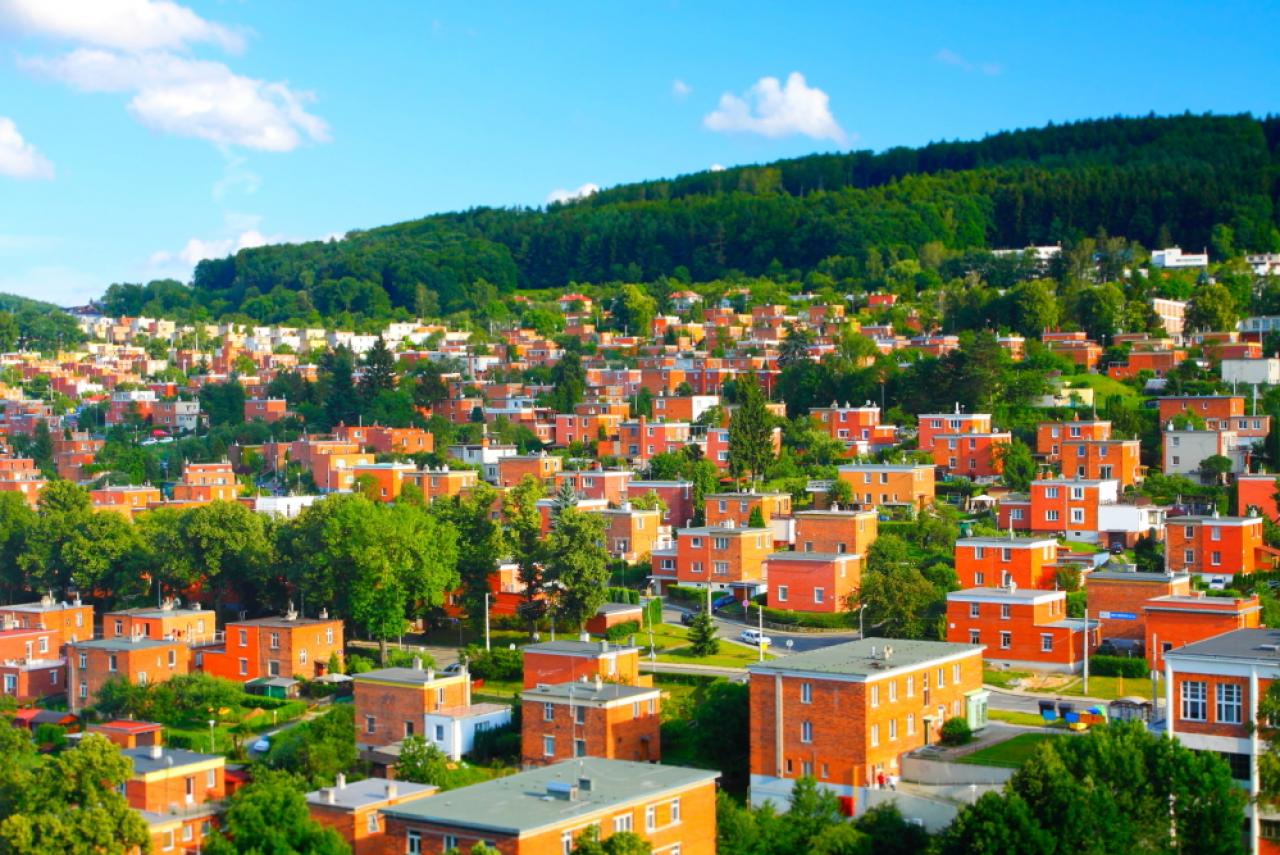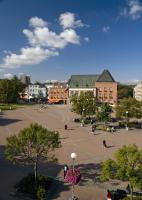
The Welcoming International Talent project focusses on welcoming international students and expats in medium sized European cities. Aim is to improve welcoming policies of these seven cities with various projects. But how do internationals themselves experience living in these welcoming cities? In this column, an international from each WIT-city will share their experiences. This time: Daniel from Zlín, Czech Republic!
"Come to Zlín for business, tourism or to study here. But you’ll stay for the people."
Zlín (rhymes with “green”) is a charming little town of about 75,000 tucked away in the southeast corner of the Czech Republic, although the locals would probably emphasize that it is in Moravia, not Bohemia, which comprises most of the west part of the country. I’ve lived in Zlín for only 3 years, but I have no problem imagining myself staying here for a long time to come. Now I’ll tell you why.
First a travel guide fact: since medieval times Zlín has had a reputation for arts and crafts, with the most popular example the world-famous Baťa shoe company, which since its founding in 1894 has expanded its production and retail facilities literally all around the globe. Now Zlín is mainly known as a university town, which fits in perfectly with the local crafts tradition, since many of the faculties of Tomas Bata University (TBU) concentrate on technological, artistic, and commercial production. At the Faculty of Multimedia Communications, one of two faculties I teach at, we experiment with traditional as well as the latest cutting edge media technologies. A selection of our works can be seen every May during the Zlín Film Festival, which is coming up soon on its 60th year anniversary.
TBU is a fine midsized university, big enough to offer state-of-the-art technology and academic opportunities, but still small enough that you don’t get lost in a massive anonymous crowd – it’s just a great place to make friends! I have experience with several universities in Europe and in the USA, but here it seems like nobody is ever so busy that they don’t have time for a quick chat between classes … or to grab a beer later on. English is the official second language of TBU, so a lot of work and communications are done in this language. To give you an idea, the goal of our undergraduate program in English for Business at the Faculty of Humanities is for learners to speak, read, write and understand the language at a CEFL C1 level. Our young people love it when they have the opportunity to explain something or just to chat in English, for example with tourists, businesspeople or the many Erasmus students who study at our campus each year for one semester or, quite often, choose stay for a second semester.
Staying with English, in the town of Zlín almost all people under the age of 40 can communicate in the language as well, at least somewhat. So if you’re out for a drink, or going to the cinema or a museum, etc. you won’t have a problem finding someone to chat with. At almost all of the (many great) restaurants here you can find a menu in English, and less frequently in German or Russian. On the other hand, after you’ve made friends who speak English, if you learn a couple of basic words in Czech like how to say hello formally (dobrý den) or informally (ahoj), or thanks (dekuji) it’s not hard to get a warm smile of recognition. After that everything seems to flow easily, and with older folks, pointing to what you want always works well when the person is glad to help you, which is everywhere! Czechs have a long, impressive tradition of using several languages – looking at their history, they had to …
There is so much more I could tell you about Zlín, like the green parks and playgrounds everywhere with the kids (and their parents and grandparents!) running about, the sports and exercise facilities all around the city, the forest and mountains surrounding the town always only a few minutes away on foot or by bike, or the day trips you can take to neighboring cities and other attractions, and speaking of that, the absolutely perfect public transportation system, which costs almost nothing and always runs exactly on time…
But I’ll finish this article by sticking with the people of Zlín. Folks in Moravia have a well-deserved reputation of being really friendly, but here in Zlín I have met the nicest, most helpful people I have ever seen. When I first got off the train here a few years ago, I could see that the railway station wasn’t exactly state of the art … But after crossing through two lovely parks past the chateau I soon found the fantastic new buildings of the main university campus. And simply strolling around the immaculate, picturesque streets and parks of the town I got the best vibe – I’m not a “new age” kind of person, but a calmness and positive feeling came to me. Even in the first ten minutes here I felt a strong connection to the city as I watched everybody interact so warmly with each other. One of the first things that struck me is that as I was walking down the sidewalks when I had just arrived was that every now and then someone would make quick eye contact with me and give me a slight smile – not a great big grin, but just a subtle look that says, “Hey, you’re here.” Maybe this sounds like a little thing, but I wasn’t used to this kind of unpretentious intimacy from a stranger in a town of this size – it made me wonder if I had a stain on my shirt or something …
So I had a sense then and there that I would like it in Zlín, and after a few weeks I decided to take the job at the uni. A few people told me that this impression about the place wouldn’t last, but it’s been three years and the feeling is stronger than ever. My Erasmus students also tell me how great it is to study here and also how wonderful it is to be able to travel to the countless cities and villages nearby, each with its own sights, culture and traditions (and even dialects, which the inhabitants can be quite proud of!). The mountains and other natural attractions and scenery around southeastern Moravia are always great to visit too, with each season of the year having its own special charms. Finally, Vienna and Bratislava (a vastly underrated city!) are only about two hours away, and of course do Prague again if you have to, although I personally found that I have no reason to go there that often anymore.

The regional capital Zlín has all the advantages of a midsized 21st century city (e.g. free WiFi all over), but with a charm and laid back feeling that has largely been lost in other places – the truth is that Zlín reminds me of what our community back in the southern USA was like during my childhood, which is the highest praise I can give. Come to Zlín for business, tourism or to study here. But you’ll stay for the people.

